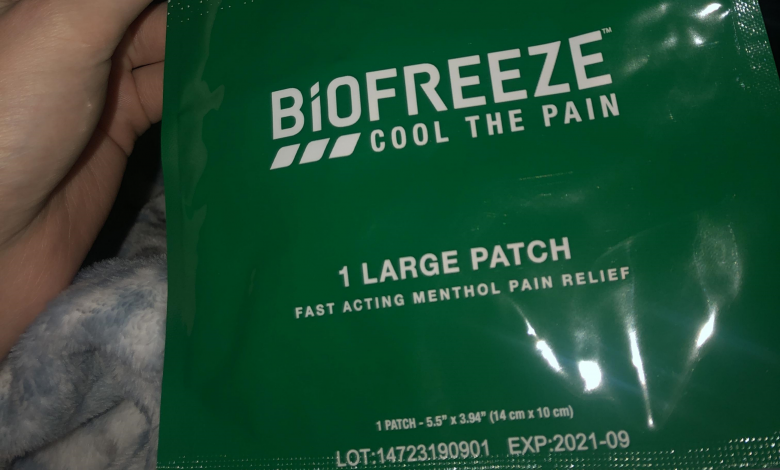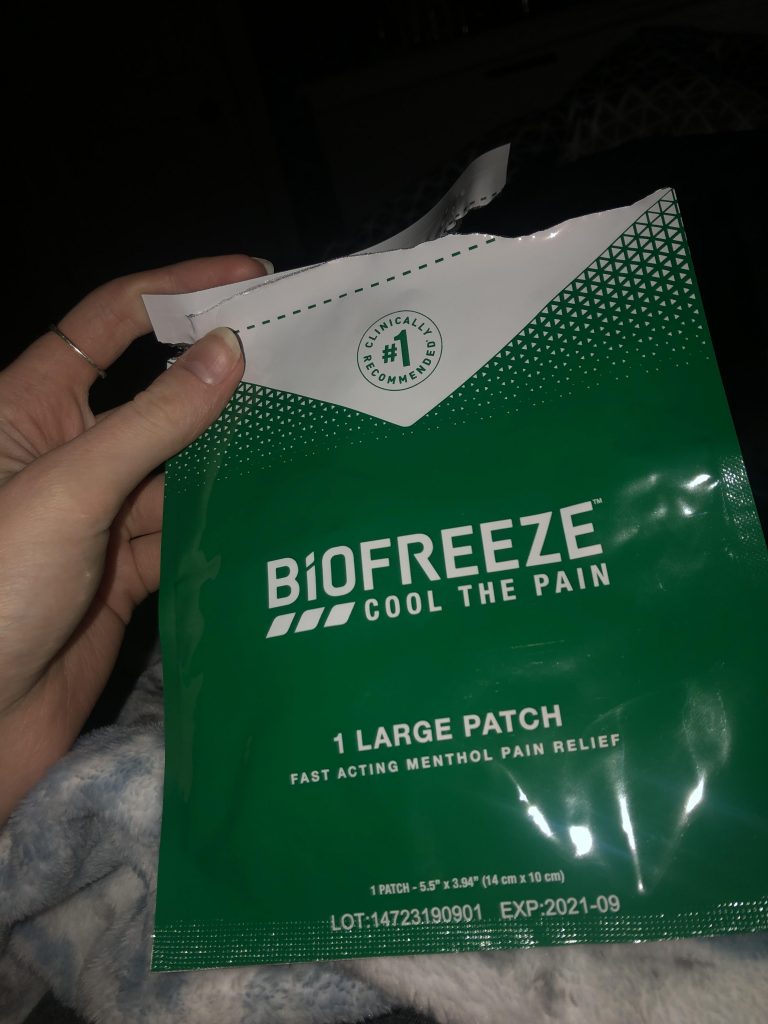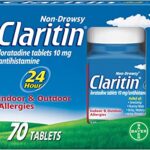Can I Use Expired Biofreeze?

What is Biofreeze?
Biofreeze is a cooling menthol formula that is fast-acting, long-lasting, and provides penetrating pain relief for sore muscles, backaches, sore joints, and arthritis. Biofreeze comes in a variety of formats, well suited for application on small and large muscle areas. However, this product is not formulated with Nonsteroidal anti-inflammatory drugs (NSAIDs).
Biofreeze applies easily for penetrating pain relief to body parts such as the back, neck, shoulder, knee, hand, wrist, elbow, foot, and ankle. The theory behind why Biofreeze is effective lies in the “Gate Control Theory.” When the body experiences stress or trauma, certain receptors communicate the feeling of pain to the brain through the spinal cord. The cold feeling resulting from Biofreeze applied to the painful area is assumed to override these pain signals, thus providing relief.
Using cold therapy is also shown to lessen inflammation and swelling, two major causes of joint and muscle pain. Biofreeze may also temporarily manage nerve activity, another contributor to pain.
Biofreeze therapy works similarly to ice in reducing inflammation and improving circulation but offers more powerful, comfortable, convenient, and long-lasting pain relief.
What is the half-life of Biofreeze?
The concept of “half-life” typically refers to the time it takes for half of a substance to decay or metabolize in a biological system. However, Biofreeze is a topical analgesic gel that provides temporary pain relief when applied to the skin. It does not undergo decay or metabolism in the same way that substances ingested or metabolized by the body do.
Biofreeze primarily works by providing a cooling sensation and temporarily numbing the area of application. Its effects are generally felt within a few minutes and can last for a few hours. The duration of its effectiveness can vary depending on factors such as the individual’s sensitivity, the amount applied, and the specific area being treated.

Does Biofreeze Expire?
Yes, Biofreeze can expire. An expiration date is a date after which a consumable product such as food or medicine should not be used because it may be spoiled, damaged, or ineffective. Expiration dates are especially important for medications because they offer the only indication of whether the product is still safe to use.
In the late 1970s, the United States Food and Drug Administration (FDA) mandated that all prescription and over-the-counter (OTC) medical products contain an expiration date. Expiration dates for medicines are often marked “EXP” and are printed on the label or stamped onto the medicine bottle or box.
How long is Biofreeze good after the expiration date?
The expiration date on a product is typically provided by the manufacturer to indicate the date until which they guarantee the product’s full potency and effectiveness when stored under proper conditions. Using a product past its expiration date can lead to a decrease in its effectiveness or potential changes in its chemical composition.
While it is difficult to provide an exact timeframe for how long Biofreeze remains effective after its expiration date without specific information from the manufacturer, it is generally recommended to adhere to the expiration date for optimal results and safety.
Using a product past its expiration date may result in diminished efficacy, reduced cooling effect, or potential skin irritations. To ensure the best results and minimize any risks, it is advisable to follow the manufacturer’s guidelines and replace Biofreeze with a fresh product once it has reached its expiration date.
Can expired Biofreeze hurt you?
Yes, expired Biofreeze can hurt you because it is less effective and risky due to a change in chemical composition or a decrease in strength. The expiration date is the final day that the manufacturer guarantees the full potency and safety of a medication. Drug expiration dates exist on most medication labels, including prescription, over-the-counter (OTC), and dietary (herbal) supplements. U.S. pharmaceutical manufacturers are required by law to place expiration dates on prescription products prior to marketing.
A sub-potent Biofreeze can fail to provide pain relief for sore muscles, backaches, sore joints, and arthritis. Once the expiration date has passed (usually two to three years after the date of manufacture), there is no guarantee that Biofreeze will be safe and effective. If your Biofreeze has expired, do not use it. Even though some controversial studies indicate that some medications can be used after expiry dates, it is better to err on the side of caution in order not to complicate your health condition or trigger unwanted adverse effects.
Some possible side effects of Biofreeze include:
• severe burning, stinging, redness, or irritation after using this medicine; or
• pain, swelling, or blistering where the medicine was applied.
Less serious side effects may be more likely, and you may have none at all.
This is not a complete list of side effects and others may occur. Call your doctor for medical advice about side effects. You may report side effects to FDA at 1-800-FDA-1088.
Can biofreeze cause heart palpitations?
Biofreeze contains menthol as its main active ingredient, which provides a cooling sensation and temporary numbing effect. When used as directed and applied topically, Biofreeze is not expected to cause heart palpitations.
Heart palpitations, which are sensations of a racing, pounding, or irregular heartbeat, can have various causes, including underlying medical conditions, medications, or other factors. However, Biofreeze is not known to have direct cardiac effects that would cause heart palpitations.
If you are experiencing heart palpitations or have concerns about your heart health, it is important to consult with a healthcare professional for a proper evaluation and diagnosis. They can assess your symptoms, medical history, and any medications or topical products you are using to determine the potential causes and provide appropriate guidance.
Who should not use Biofreeze?
While Biofreeze is generally considered safe for most individuals, there are certain situations and conditions in which caution or avoidance of its use is recommended. It is important to consult with a healthcare professional or refer to the product’s instructions and warnings provided by the manufacturer for specific guidance. However, here are some general considerations:
1. Allergic Reactions: If you have known allergies or sensitivities to any of the ingredients in Biofreeze, it is advisable to avoid using the product to prevent allergic reactions.
2. Open Wounds or Broken Skin: Biofreeze should not be applied to open wounds, cuts, or areas of broken or damaged skin, as it may cause irritation or stinging sensations.
3. Sensitivity or Skin Conditions: Individuals with pre-existing skin conditions or sensitive skin should use caution when using Biofreeze. It is recommended to perform a patch test on a small area of skin before applying it to a larger area.
4. Children and Infants: Biofreeze is typically not recommended for use in children under the age of 2 without the guidance of a healthcare professional.
5. Pregnancy and Breastfeeding: The safety of using Biofreeze during pregnancy or while breastfeeding has not been well-studied. It is advisable to consult with a healthcare professional before using Biofreeze during these periods.
6. Other Medical Conditions or Medications: If you have any underlying medical conditions or are taking medications, it is important to consult with a healthcare professional before using Biofreeze to ensure there are no contraindications or potential interactions.
Remember, these are general considerations, and individual circumstances may vary. It is always best to consult with a healthcare professional for personalized advice based on your specific situation.





